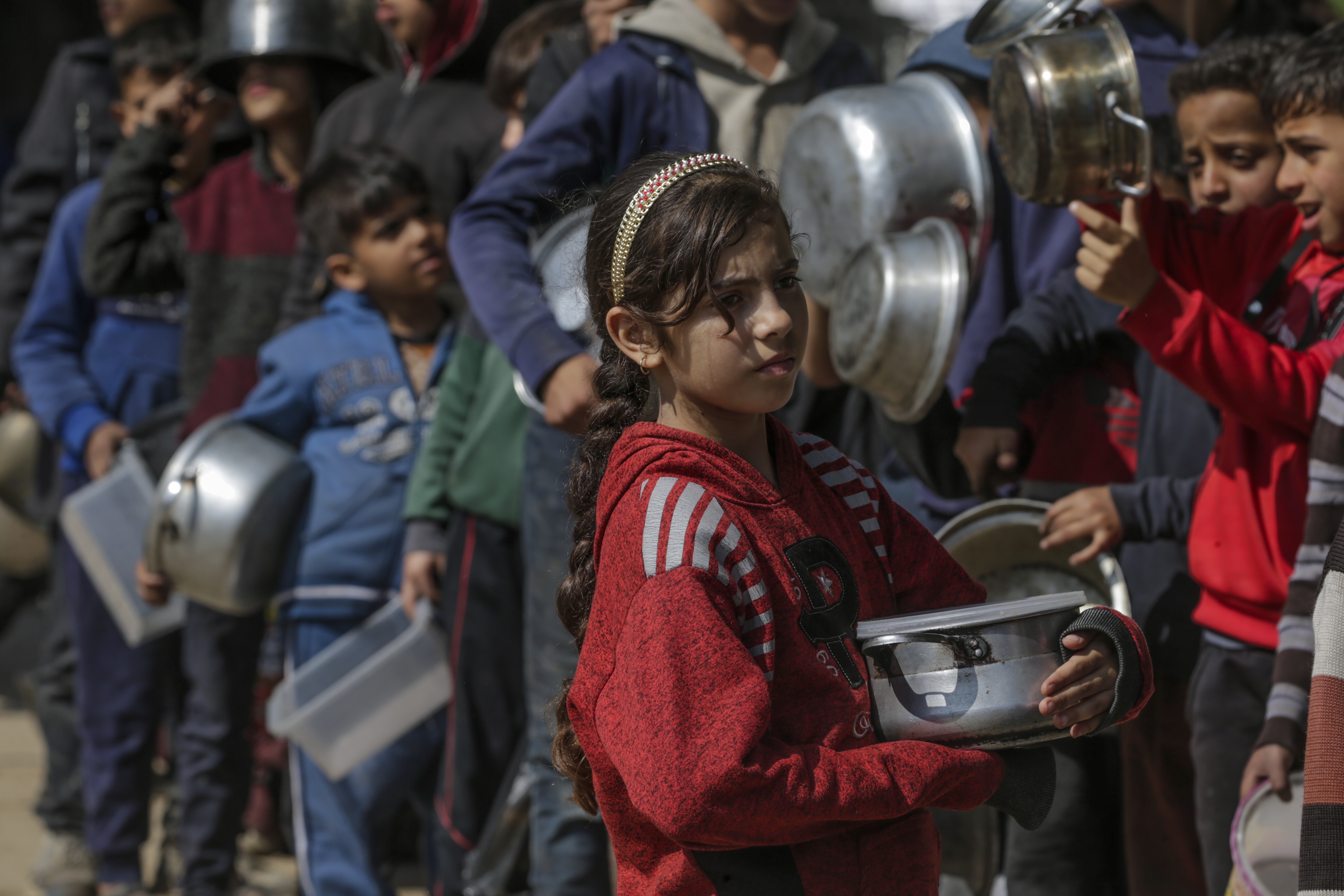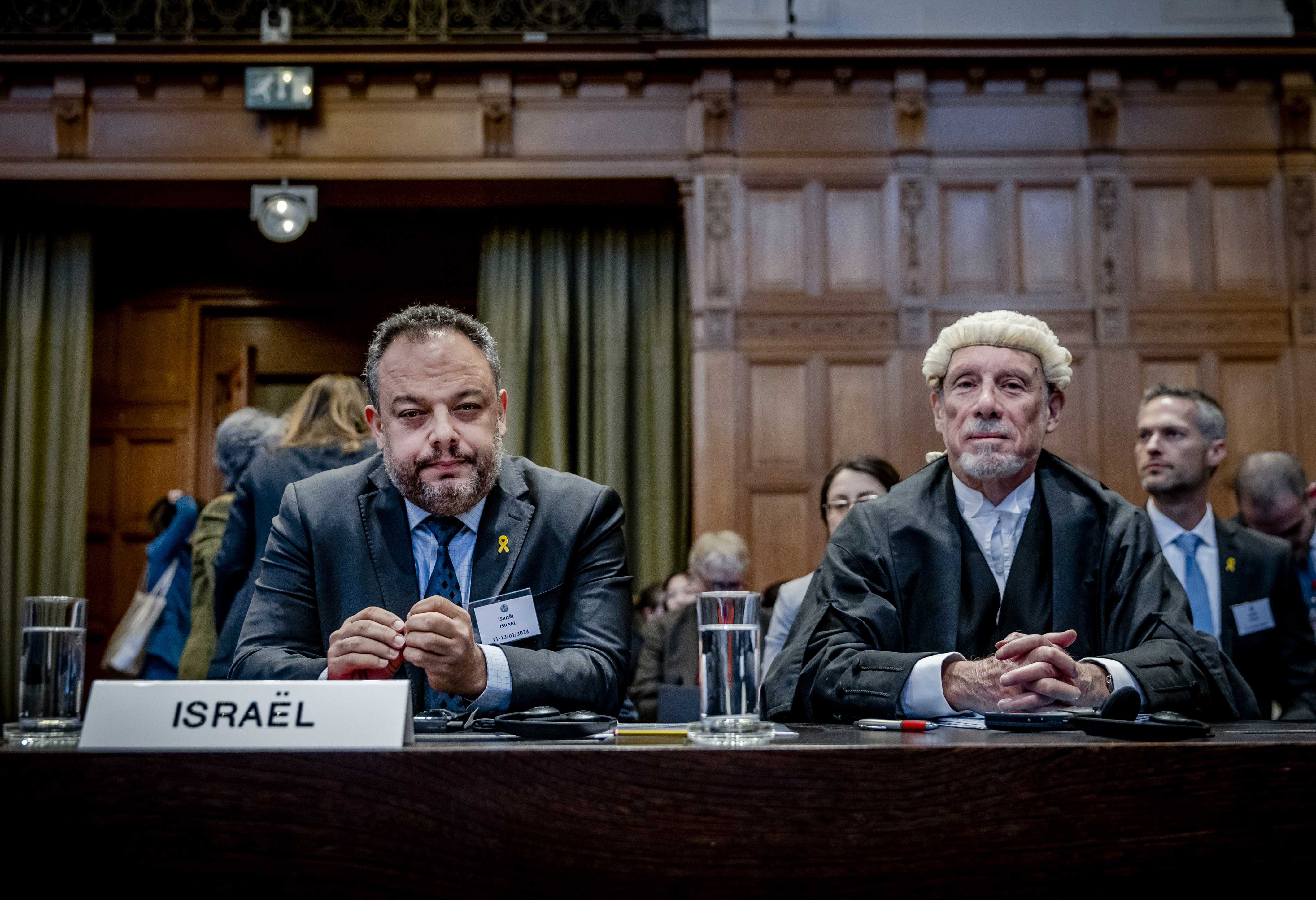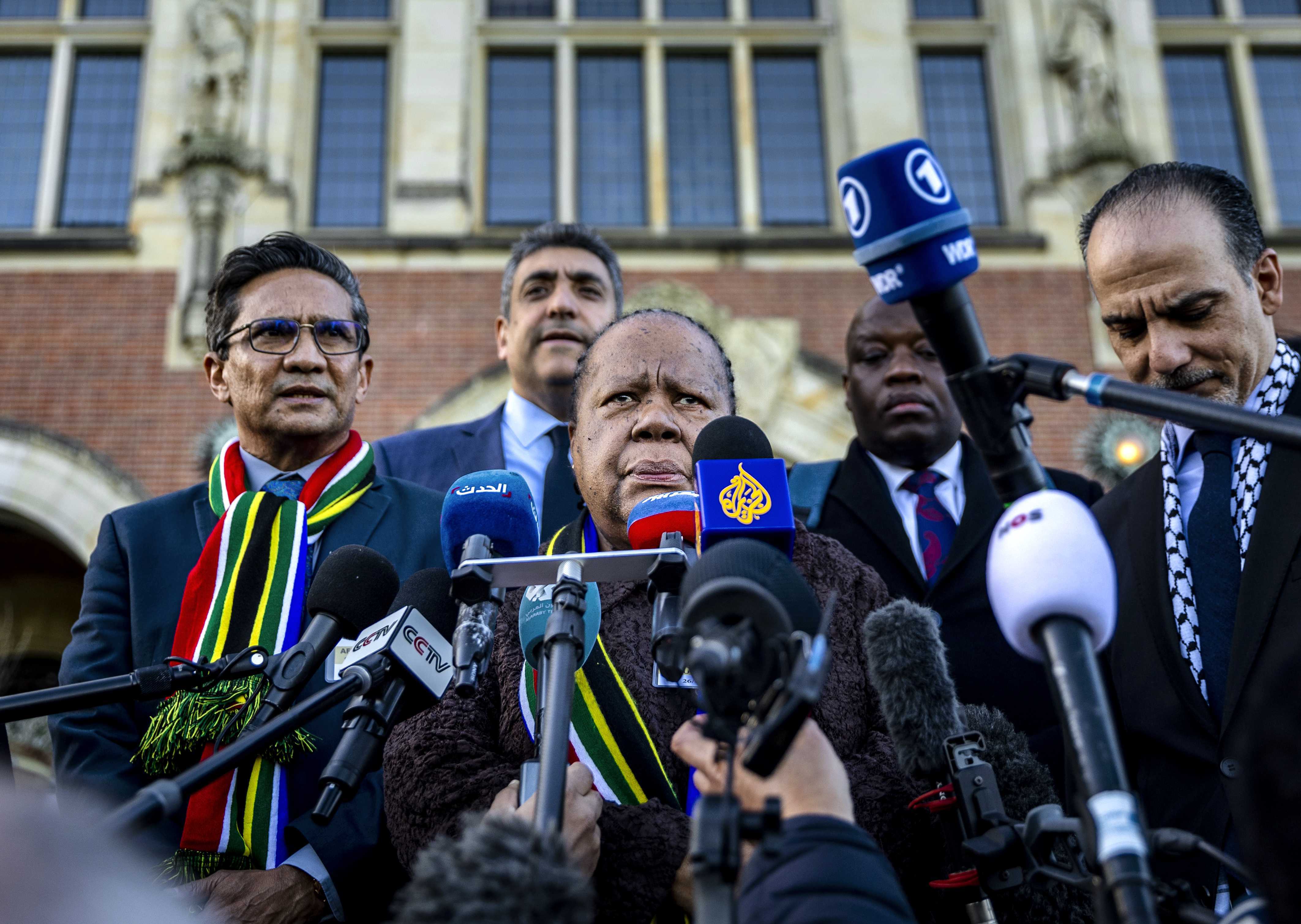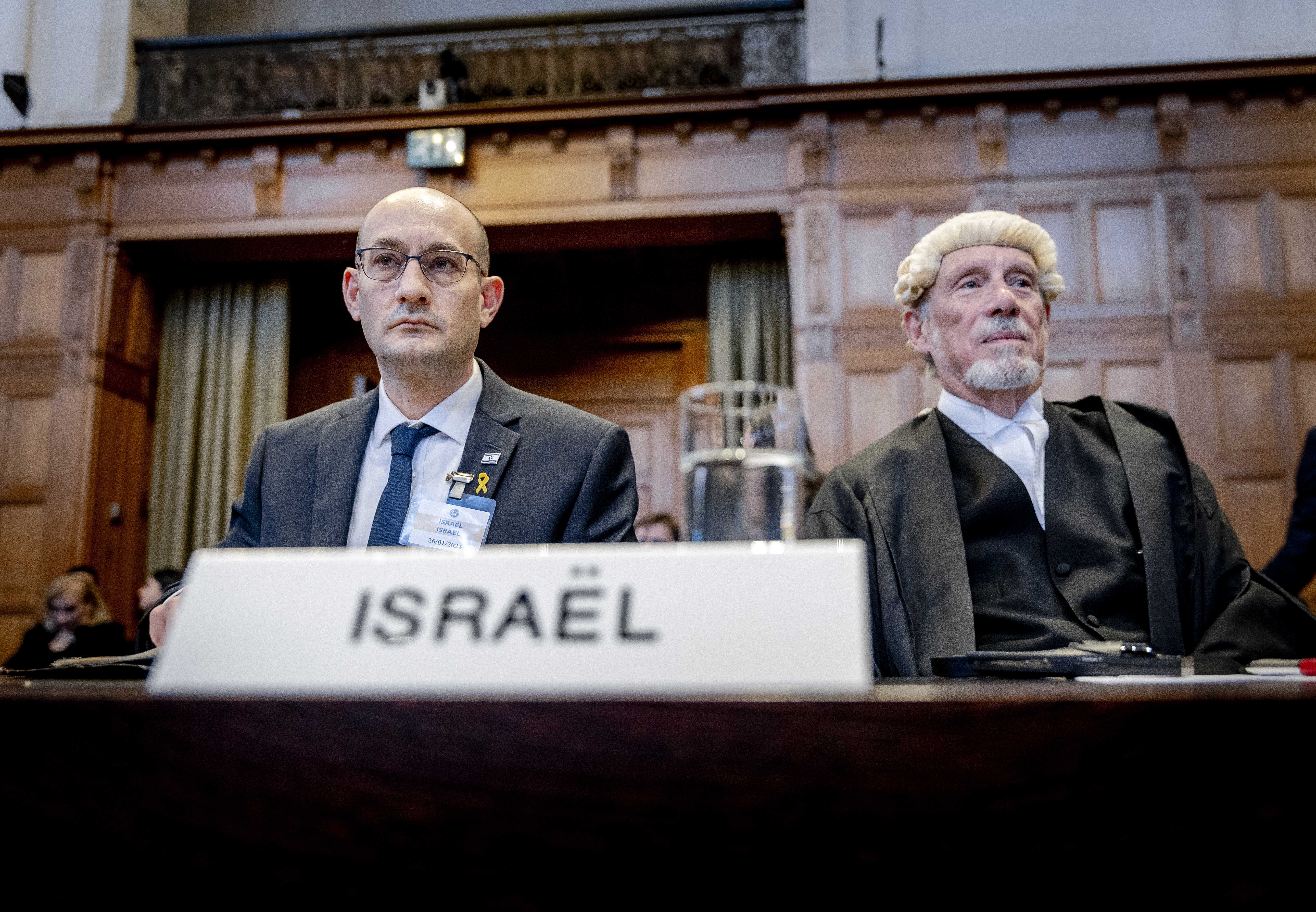Israel has responded to South Africa’s request to the International Court of Justice (ICJ) for additional provisional measures and modifications to its 26 January order, asking the ICJ to refuse South Africa’s request to make an order to prevent famine in Gaza and not indicate any further provisional measures.
The ICJ on Monday made public Israel’s observations on South Africa’s urgent request of 6 March.
In its observations, filed to the court on 15 March, Israel said South Africa’s request “hinges on a misrepresentation of reality, and a sensationalist and obsessive attempt to accuse Israel of the most egregious crimes regardless of the law or the facts”.
“South Africa seeks to relitigate what the Court has already decided, and to have the Court micromanage the conduct of hostilities in Gaza, not because this is in any way legally justified or required, but as a way for South Africa to seek continual political attention and to demonstrate continuing solidarity with its ally Hamas.”
Read more in Daily Maverick: South Africa asks ICJ to urgently act to prevent ‘full-scale famine’ in Gaza
 Internally displaced Palestinian children queue up with their pots and containers waiting to receive food provided by Arab and Palestinian donors in Deir Al Balah town, southern Gaza Strip, 24 February 2024. (Photo: EPA-EFE / MOHAMMED SABER)
Internally displaced Palestinian children queue up with their pots and containers waiting to receive food provided by Arab and Palestinian donors in Deir Al Balah town, southern Gaza Strip, 24 February 2024. (Photo: EPA-EFE / MOHAMMED SABER)
On 26 January, South Africa persuaded the ICJ that there was a plausible case of genocide committed by Israel against the Palestinians in Gaza.
The court ordered Israel to prevent genocide, to prevent and punish incitement to genocide and to increase humanitarian aid flowing into Gaza. But it stopped short of ordering Israel to implement a ceasefire in Gaza, which was the maximum provisional measure South Africa had called for.
It also called on Hamas to release the remaining hostages captured in its attack on Israel on 7 October.
South Africa made an appeal to the ICJ on 6 March for the indication of additional provisional measures and the modification of the court’s 26 January order — calling on the court to urgently act to prevent famine in the region.
It argued that a change of circumstance in Gaza — particularly the situation of widespread starvation — demanded additional provisional measures and amendments to the ICJ order, saying that Israel had shown contempt for the court and its order.
Among the modifications sought by South Africa was that, “All participants in the conflict must ensure that all fighting and hostilities come to an immediate halt, and that all hostages and detainees are released immediately.”
It also wanted the ICJ to order Israel to prevent famine in Gaza by “immediately suspending its military operations in Gaza … lifting its blockade of Gaza [and] … ensuring the provision of adequate and sufficient food, water, fuel, shelter … medical supplies and support.”
This was the second urgent request South Africa filed with the ICJ — the first request being on 12 February for additional measures to be taken by Israel to prevent harm to civilians during its assault on the southern Gaza city of Rafah. The court declined this request, saying Israel remained bound by its order of 26 January.
Read more in Daily Maverick: Middle East crisis news hub
In its response to SA’s 6 March request, Israel argued that there has been no “change in the situation” in Gaza.
“It is of course inevitable that in the course of an ongoing conflict, there will be developments in the situation. However, that does not mean that every such development can be regarded as a ‘change in the situation’ for purposes of the Rules of Court; otherwise, new requests for additional provisional measures could be made on a daily basis,” it said.
 Tal Becker (L), Legal Counsel of Israel's Foreign Ministry, and lawyer Malcolm Shaw (R), prior to the hearing of the genocide case against Israel, brought by South Africa, at the International Court of Justice (ICJ) in The Hague, Netherlands, 11 January 2024. (Photo: EPA-EFE / REMKO DE WAAL)
Tal Becker (L), Legal Counsel of Israel's Foreign Ministry, and lawyer Malcolm Shaw (R), prior to the hearing of the genocide case against Israel, brought by South Africa, at the International Court of Justice (ICJ) in The Hague, Netherlands, 11 January 2024. (Photo: EPA-EFE / REMKO DE WAAL)
Article 76
The international justice cluster lead for the Southern Africa Litigation Centre, Dr Atilla Kisla, told Daily Maverick Israel’s response was “nothing unexpected”.
“It highlights the requirement that what must be met is a change in the situation, and that remains up to the court now to make a decision — whether it considers that the actual situation on the ground has changed significantly; that modification of the provisional measures is justified or not.”
In trying to refute South Africa’s arguments of starvation and the threat of famine, Kisla said Israel claimed what SA had submitted was “outrageous and unsubstantiated”.
Kisla believed SA’s latest request was “much more extensive”, and went into “much more detail about the threat of starvation and famine than its previous request on 12 February”.
What South Africa did was also refer to Article 76. Under Article 76 of the Rules of Court, the court, at the request of a party or on its own initiative, may modify provisional measures that it has issued or revoke them if there has been some change in the situation that justifies this.
“Compared to that request from mid-February, I think this request has a better chance of convincing the court that the situation has changed,” he said.
However, Kisla said the court could still hold the view that the provisional orders of 26 January were sufficient and Israel remained bound by these orders, and therefore there was no need for a modification of these measures.
Professor of international law at the University of Cape Town Cathleen Powell believed that South Africa has a slightly stronger case in its second request, given that, “we now have records of children dying of starvation … and because the situation has become far, far worse”.
Powell said that should the ICJ decline South Africa’s latest request, the country would be able to take the court’s decision of 26 January to the UN Security Council to seek action against Israel if it failed to comply with the January order.
 South African Foreign Minister Naledi Pandor (C) speaks to the international press following a ruling by the International Court of Justice (ICJ) in The Hague, Netherlands, on a request by South Africa for emergency measures for Gaza, 26 January 2024. (Photo: EPA-EFE / Remko de Waal)
South African Foreign Minister Naledi Pandor (C) speaks to the international press following a ruling by the International Court of Justice (ICJ) in The Hague, Netherlands, on a request by South Africa for emergency measures for Gaza, 26 January 2024. (Photo: EPA-EFE / Remko de Waal)
‘Famine is imminent’
The publication of Israel’s observations on South Africa’s request comes as experts warn famine is imminent for 300,000 people in northern Gaza and 1.1 million people — half the region’s population — are experiencing “catastrophic food insecurity”.
A new report, released on Monday by the Integrated Food Security Phase Classification (IPC), said: “The IPC acute food insecurity analysis conducted in December 2023 warned of a risk that famine may occur by the end of May 2024 if an immediate cessation of hostilities and sustained access for the provision of essential supplies and services to the population did not take place.
“Since then, the conditions necessary to prevent famine have not been met and the latest evidence confirms that famine is imminent in the northern governorates and projected to occur anytime between mid-March and May 2024.”
According to the report, this is the highest number of people facing catastrophic hunger ever recorded by the IPC system.
The situation in #Gaza is catastrophic.
Famine is imminent in the north and a risk of Famine persists across the rest of the #GazaStrip.
Read more➡️https://t.co/dpWbC6fWHa pic.twitter.com/ASLdBK6XHj
— The Integrated Food Security Phase Classification (@theIPCinfo) March 18, 2024
The IPC is a global authority on food insecurity that analyses data from the UN World Food Programme, other UN agencies and non-governmental organisations to determine the severity and magnitude of hunger crises.
Since the IPC was established in 2004, it has been used to classify a famine only twice before: in Somalia in 2011 and South Sudan in 2017, The New York Times reported. More than 100,000 people died in Somalia before famine was officially declared in the region.
Across the Gaza Strip, people are facing dire food shortages amid Israeli bombardment, with the entire population in the enclave “facing high levels of acute food insecurity”, according to the IPC report.
The airstrikes and missile attacks that continue to pound the Gaza Strip have killed more than 31,000 Palestinians and wounded more than 73,000, most of them women and children, according to Gaza’s health ministry. Israel launched its attacks in retaliation for Hamas’ 7 October attack that killed almost 1,200 people, mostly civilians, with about 250 people taken hostage. DM




 South African Foreign Minister Naledi Pandor (C) speaks to the international press following a ruling by the International Court of Justice (ICJ) in The Hague, The Netherlands, on a request by South Africa for emergency measures for Gaza, 26 January 2024. The UN court ruled that Israel must take all measures to prevent genocidal acts in Gaza, but stopped short of ordering an immediate halt to operations. EPA-EFE/Remko de Waal
South African Foreign Minister Naledi Pandor (C) speaks to the international press following a ruling by the International Court of Justice (ICJ) in The Hague, The Netherlands, on a request by South Africa for emergency measures for Gaza, 26 January 2024. The UN court ruled that Israel must take all measures to prevent genocidal acts in Gaza, but stopped short of ordering an immediate halt to operations. EPA-EFE/Remko de Waal 